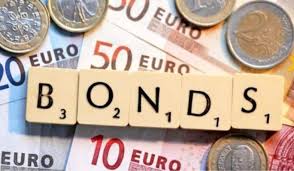Yields on Nigeria’s Eurobonds have fallen to their lowest point in two months, following a rise in global oil prices and renewed confidence from international investors. This development is seen as a sign that investors are becoming more positive about Nigeria’s economy and its ability to repay its debts.
Reports from other financial news platforms show that yields on Nigeria’s foreign-currency bonds, known as Eurobonds, have dropped significantly, hitting the lowest levels seen in about eight weeks. When bond yields fall, it usually means that the demand for those bonds is rising, as investors are more willing to accept lower returns in exchange for what they believe is lower risk.
One of the main reasons behind the falling yields is the recent increase in the price of crude oil. Brent crude, which is Nigeria’s main export oil type, has gone up by almost 8% in the last two weeks. Similarly, West Texas Intermediate (WTI), another global oil benchmark, has also risen above 80 US dollars per barrel. For a country like Nigeria, which depends heavily on crude oil for foreign exchange earnings, this rise in oil prices is very important. It increases government income and gives investors more assurance that Nigeria will be able to meet its external financial obligations.
The National Bureau of Statistics (NBS) recently confirmed that crude oil still accounts for over 80% of Nigeria’s export revenue. This makes the oil market a key part of the country’s ability to repay its Eurobond debts. As oil prices rise, the Nigerian government gets more dollars, which it can use to repay interest and principal on its international borrowings.
Financial experts say the lower bond yields now provide a chance for the Nigerian government to raise money from international lenders at a cheaper cost. This is good news at a time when the government is still facing large budget deficits and needs funds for infrastructure and social projects.
Another major reason for the improvement in investor sentiment is the closer working relationship between the Central Bank of Nigeria (CBN) and the Ministry of Finance. The sources said the CBN Governor, Olayemi Cardoso, has been working closely with President Bola Tinubu’s economic team to maintain the value of the naira, reduce foreign exchange instability, and build investor confidence.
Also, Minister of Finance, Wale Edun, has been pushing for better spending controls and debt servicing as part of the 2025 budget. These moves show the government’s seriousness in fixing the economy, which is something foreign investors are watching closely.
Eurobond yields are an important signal to both local and international markets. When yields drop, it means that Nigeria is seen as more creditworthy. For example, Nigeria’s 10-year Eurobond now trades at a yield of about 9%, which is lower than Ghana’s, where yields have jumped to over 12% because of concerns about their debt levels.
However, not everyone believes this trend will last. One Lagos-based bond analyst, who didn’t want to be named, warned that this improvement may be temporary. “Yes, we see demand right now, but long-term problems like Nigeria’s rising debt and trade deficits are still there. The government needs to stay disciplined,” the analyst said.
The news has also been welcomed by banks and pension funds in Nigeria. These institutions have been buying Eurobonds in recent months to get better returns. One pension fund operator, Mr Kehinde Adeoye, said his fund recently bought a five-year Eurobond due to confidence in Nigeria’s oil income and recent economic policies.
Even though the bond market is looking better now, global risks remain. If the U.S. Federal Reserve raises interest rates or if inflation rises sharply, investor appetite for Nigerian bonds may reduce again.
For now, the situation gives Nigeria a rare opportunity. If the government continues with reforms, keeps oil production stable, and manages the naira effectively, it could enjoy cheaper borrowing and a stronger economy.
